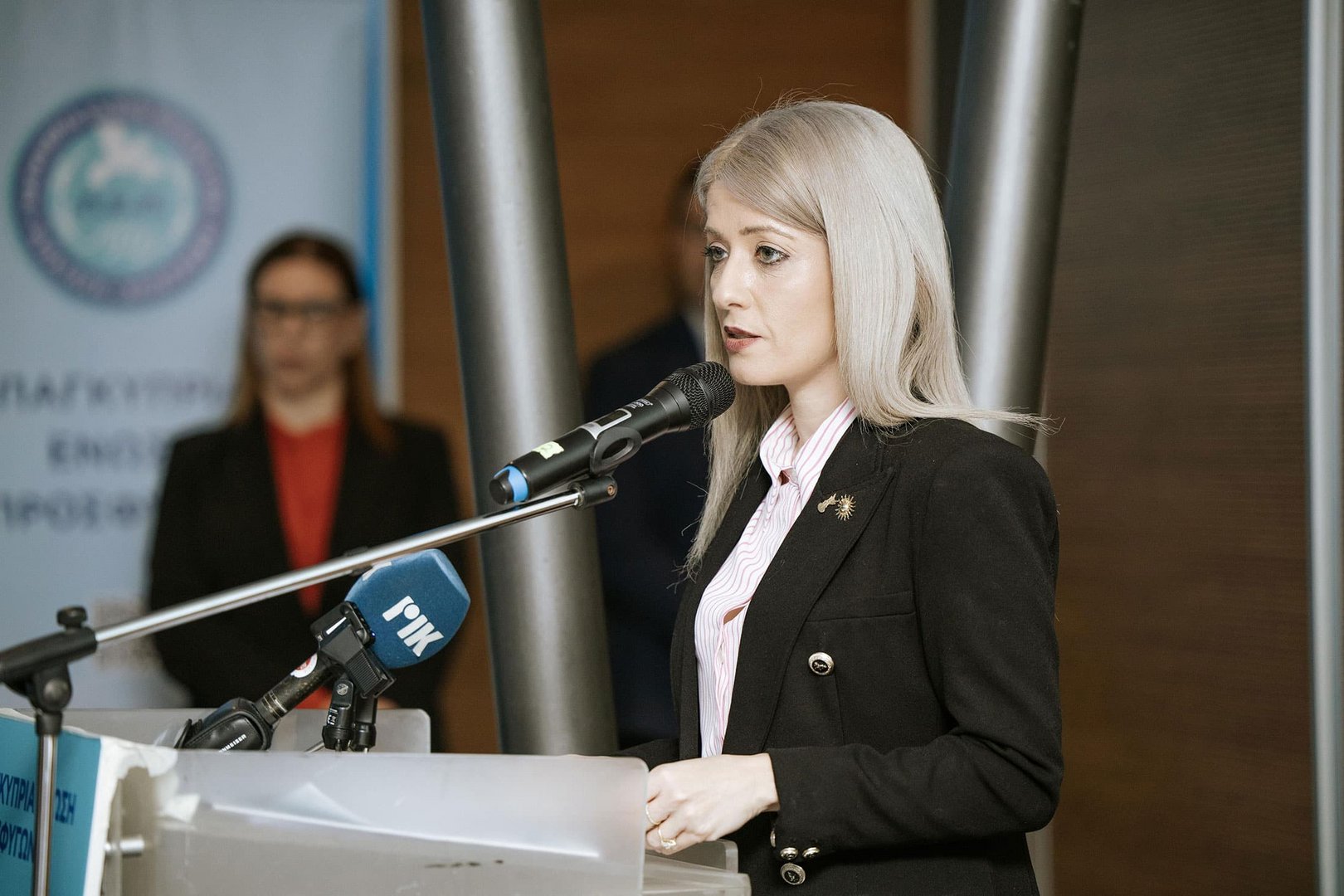“None of the above” was the most popular option selected by voters in an opinion poll of voting intention for the next parliamentary elections conducted by Red Wolf.
Twenty per cent of respondents said they would not vote for any party at the next election, scheduled for May 2026 – one point higher than both of Cyprus’ “big two” parties Disy and Akel, who were tied on 19 per cent.
Meanwhile, Elam’s growth continues, with the far-right party now garnering 10 per cent of the population’s support. Taking away preferences for “none of the above”, “other”, and “don’t know”, this figure would leave them on 16 per cent of the vote at the election. The survey by Red Wolf PR company was carried out with 868 participants.
Eight per cent of respondents indicated an intention to vote for Diko, three per cent each said they would vote for Edek and Dipa, and two per cent said they would vote for the Green Party – a figure which would see them fail to win a seat in parliament.
Were these figures transposed to June’s European Parliament elections, Disy, Akel and Diko would hold onto their seats, while Edek would lose theirs, to be replaced by the first ever Elam MEP.
Despite her party being less popular than “none of the above”, Disy leader and House president Annita Demetriou is by a considerable distance the most popular political party leader in the country, with 53 per cent of respondents expressing a positive view of her and just 18 per cent a negative view.
Akel leader Stefanos Stefanou is the second-most popular party leader and the only other party leader with a higher number of people expressing a positive rather than a negative view of him. A total of 35 per cent of people view him positively, and 28 per cent the opposite.
Edek Leader Marios Sizopoulos is the least popular party leader in Cyprus, with just nine per cent of respondents registering a positive view of him, and 64 per cent a negative view.
On the matter of the last presidential elections, President Nikos Christodoulides is now the fourth-most popular choice among respondents of the 2023 candidates.
With just 16 per cent of respondents saying they would vote for him again, he is now less popular than Andreas Mavroyiannis, preferred by 22 per cent, “none of the above”, preferred by 18 per cent, and Averof Neophytou, preferred by 17 per cent.
At the same time, 20 per cent of respondents said they have a “positive view” of Nikos Christodoulides, while 45 per cent said the opposite.
“None of the above” was also the most popular answer to the question “who is the most productive minister”, with 30 per cent of respondents.
This figure is considerably higher than the second-most frequent response, Interior Minister Constantinos Ioannou at 18 per cent.
Education Minister Athena Michaelidou at 12 per cent, Labour Minister Yiannis Panayiotou at nine per cent, and Finance Minister Makis Keravnos at nine per cent, also featured.
Regarding the government’s performance on various policy matters, the survey’s responses paint a dull picture of the public’s reaction to its management of the Cyprus problem, with just seven per cent of respondents approving of the government’s performance and 69 per cent disapproving.
Meanwhile, just 11 per cent of respondents approved of the government’s performance on the economy, with 47 per cent disapproving, and just 12 per cent approved of the government’s performance on the matter of migration, with 66 per cent disapproving.
The only policy matter on which the government received more approval than disapproval was health, where 33 per cent of respondents approved of the government’s performance, and 23 per cent disapproved.
Additionally, the survey showed that the auditor-general is the most trusted institution on the island, with 46 per cent of respondents saying they trust him. The army was the second-most trusted, at 42 per cent, and the church in third at 37 per cent.
The European Union, at 31 per cent, is much more trusted than the United Nations, at just 10 per cent, while 14 per cent of respondents say they trust the media.
The survey also showed that young people are more religious and less interested in politics than their elders.
Respondents aged between 18 and 24 years old were the most religious age cohort of any. On a scale of one to ten with ten with ten being “very religious”, young people on average placed themselves at seven.
The next-most religious age cohort was people aged between 45 and 54 years old, who placed themselves on average at 6.67.
In terms of interest in politics, on a scale of one to ten with ten with ten being “very interested”, people aged between 18 and 24 years old placed themselves at just 2.55, dragging down an overall average for all age groups of 5.73.
Other results of the survey included that men are more satisfied with gender equality in Cyprus than women and that people from Paphos are the proudest to be Cypriot while people from Famagusta are the least proud.
https://www.slideshare.net/slideshows/cyprus-public-opinion-february-2024pptx/266193667







Click here to change your cookie preferences